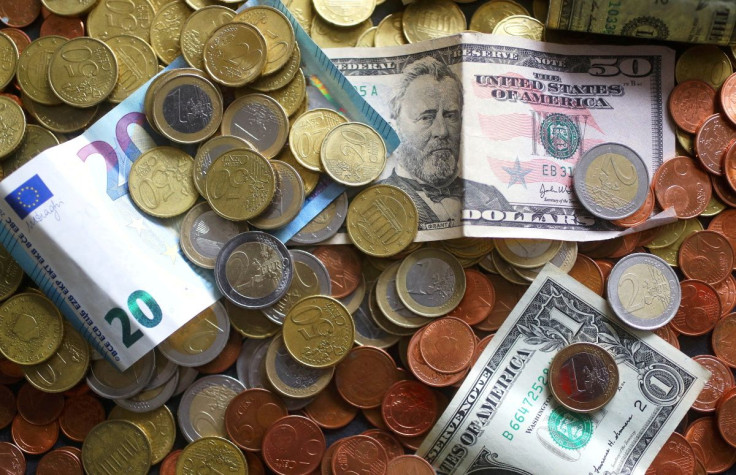Dollar Falls As U.S. Yield Rally Stops For Breath

The dollar lost ground against most major peers on Thursday, falling from two year peak hit overnight, as U.S. yields paused their march higher after U.S data released earlier in the week showed inflation lower than some analysts had feared.
Even the battered yen had some respite, making a small recovery from a 20-year low hit overnight, though analysts reckoned the yen's tone remained weak.
Otherwise, investors were awaiting a European Central Bank meeting later in the day, to see whether it was as hawkish as some of its global peers, after a spate of rate increases in recent days.
The euro rose 0.2% on Wednesday ahead of the meeting, to $1.0911, and sterling gained 0.1% to a one week high of $1.3141, both extending larger gains made in the previous session.
"Today's focus will be the ECB meeting, and we're looking for a relatively hawkish outcome, so that might give a bit of support to euro in the near-term. We're seeing this $1.08-1.10 range being where euro-dollar seems to be settling for now," said Mitul Kotecha, a senior currency strategist at TD Securities in Singapore.
The dollar index, which measures the greenback against six peers, was down 0.17% at 99.670, compared to Wednesday's intraday peak of 100.52, its highest since May 2020.
"At the beginning of the week I was saying everything followed from the ongoing grind higher in U.S. yields, equities were off, the dollar was soaring, and now because of what's happening in Treasuries, everything has reversed," said Ray Attrill global head of FX strategy at National Bank of Australia.
The benchmark 10-year Treasury yield was 2.6693%. It rose steadily earlier this month - driven by expectations of more aggressive Federal Reserve tightening to combat inflation - and reached as high as 2.836% on Tuesday, ahead of U.S. inflation figures.
However, while high, these were not quite as bad as some had feared, which observers said caused yields to pause.
The two year yield was also lower at 2.3218%.
Other central banks reinforced the hawkish global mood ahead of the ECB meeting. Earlier in the day, the Bank of Korea, surprised markets with a rate hike, and the Monetary Authority of Singapore also tightened policy.
The Singapore dollar gained about 0.5% to a one week high on the dollar after the move. The Korean won was little moved.
On Wednesday, the Bank of Canada and Reserve Bank of New Zealand both raised rates by 50 basis points, the largest hike for each in around 20 years.
The pause in yields meant the Japanese yen managed a small recovery in U.S. trade which continued into early Asia. It was last at 125.37 per dollar, having fallen to a 20 year low of 126.31 on Wednesday.
More than three-quarters of Japanese firms say the yen has declined to point of being detrimental to their business, a Reuters poll found, with almost half of companies expecting a hit to earnings.
"Now that we've broken sustainably through 125, we could see 130 being targeted. But in the near-term, with U.S. yields coming off a bit, I think we'll see some consolidation," said Kotecha.
"Ultimately, I think we still see U.S. yields moving higher, meaning dollar-yen continues to move higher."
© Copyright Thomson Reuters 2024. All rights reserved.




















